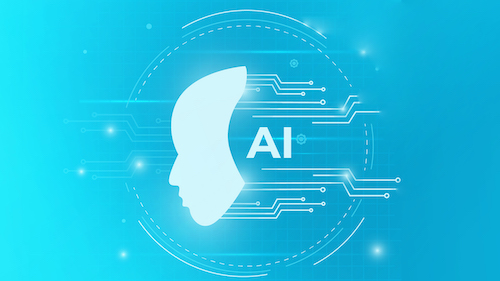
Just to give you a quick measure of how much interest there is in AI graduate education right now — Associate Professor Marouane Kessentini was getting dozens of inquiries from prospective students and employer sponsors before the application link was even live for our new MS in Artificial Intelligence. He’s not particularly surprised. Artificial intelligence is so rapidly transforming a huge array of industries that companies are facing challenges filling positions requiring advanced knowledge of AI systems.
One of the reasons for the shortage of workers may simply be a shortage of AI graduate programs. While many computer science fields only require a bachelor's degree, Kessentini says employers hiring for positions involving AI systems are typically looking for graduate-level education. The challenge right now is that there are only a handful of such programs in the United States. When UM-Dearborn’s master’s program officially launches this fall, it will be the first in Michigan.
“Having a graduate degree is important with AI because people who can build and maintain and evolve AI systems need to think very holistically,” Kessentini explains. “Of course, you need technical skills. But you also need an understanding of the ethical issues involved with AI, as well as data privacy and compliance issues, which are always evolving.”
The new master’s will offer students four concentrations, corresponding to some of the most pressing industry needs. A concentration in computer vision is particularly relevant in the automotive industry, as manufacturers make the transition to autonomous vehicles. Another concentration in intelligent interaction will focus on consumer and industry technologies that are designed to interface directly with humans. Two additional concentrations offer more technical tracks for those wanting to specialize in machine learning or knowledge management and reasoning.
Given the acute need for AI specialists, Kessentini expects the program will draw people working in technical fields who are looking to take the next step in their careers. “In our conversations with employers, one thing we hear a lot is that they have needs for AI, but they don’t want to hire a whole new workforce,” Kessentini says. “They may have electrical or software engineers who are brilliant people and know the company well, so they’d like to keep them but with this new expertise.” With this prospective student in mind, Kessentini says the college designed the program with maximum flexibility, including late-afternoon and evening classes, part-time and full-time options, and a choice of in-person, all online, or hybrid learning formats.
Kessentini says the other big winner could be the state of Michigan. While AI is quickly transforming many aspects of our world, manufacturing is poised to see the largest shift over the next decade, as big data transforms the factory floor the way it has retail and healthcare. If we can help meet the demand, that could make manufacturing-rich Michigan a hub for artificial intelligence too.
###
Interested in UM-Dearborn’s new Master of Science in Artificial Intelligence? Learn more or apply on the official program page.




